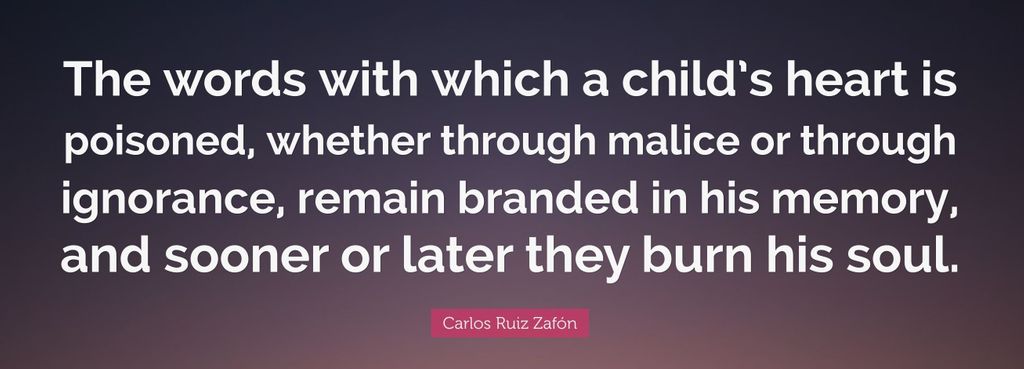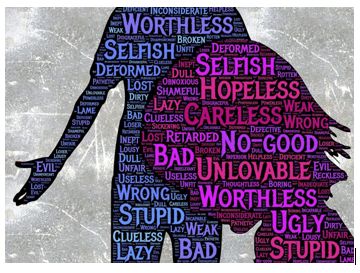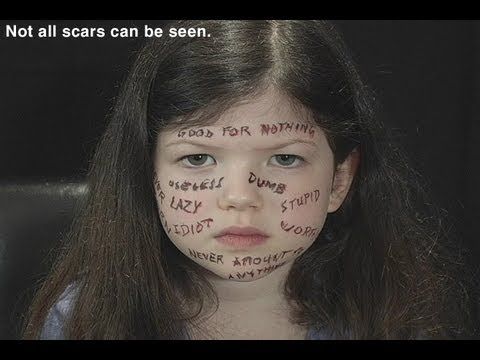Verbal Child Abuse - The Aftermath
Jul 09, 2019 • 260 views

According to Merriam-Webster dictionary, verbal abuse is any kind of harsh and insulting language directed at a person. It is the use of derogatory words which are said with the intent to hurt a person, to demoralize them. These need not be limited to profanities but can also include words such as 'stupid', 'useless', 'good for nothing', etc.
Children are young, innocent and still learning the ways of the world. They make mistakes and parents often scold them for doing so. However, parents fail to realise the moment when they cross the fine line separating scolding from verbal abuse. Bullying is also a form of verbal abuse. Children have delicate minds that are still developing and they constantly look up to their elders for guidance and protection. Parent’s, teachers, siblings, family members and even friends are meant to be a beacon for them, be a safeguard from the outside world. They are supposed to be the cornerstone and support the child through any obstacles they might encounter. Facing abuse from the people considered to be their guardian angels can leave a profound and often irreversible impact on their lives.

1. Inferiority complex
A child who is constantly abused tends to start feeling inferior about themselves. They do not consider themselves worthy of anything. Always comparing your children with others makes them feel inadequate and makes them doubt their own capabilities. If their elders stop believing in them, they lose confidence in themselves and start to show a severe drop in confidence and self esteem levels.
“You are good for nothing. Just look at XYZ's son. He has scored 95% in boards while you have simply 93%. Why couldn’t you get more than him? You are simply useless and stupid”
This sentence is very commonly heard in many families and though may not been given much thought, is actually considered to be verbal abuse.
2. Reduced performance levels
Constantly having to hear demoralizing statements about oneself tends to leave a tremendous mental and emotional strain. The child starts gets distracted easily by the negative thoughts inside their head. They cannot focus and thus often start to show levels of reduced performance both mentally and physically.
For example, an athlete who has just had to face verbal abuse before a match cannot 'get his head in the game' and that is reflected in his performance on the field.
3. Performance anxiety
When a child is being abused, they will try to act in a way which will help them avoid that kind of trauma. This will result in them trying to act ‘favourably’ for the abuser. They might feel a pressure to behave in a certain manner to an extent that the pressure starts to cause them excessive anxiety and stress. This anxiety may also end up affecting their performance
4. Hopelessness
A child abused by a parent, cannot escape and begins to feel despair. Tied down by their love for their parents. they are unable to escape the situation and start feeling helpless. They believe that they deserve the abuse and accept it as a lifestyle. An aura of hopelessness permanently surrounds the children thus inhibiting their drive to succeed in the future. They are permanently guilt ridden as they believe they did something wrong to deserve this kind of treatment.
5. Antisocial Personality
A person who is abused in his childhood tends to develop an antisocial personality as his abusers portrayed humanity as a whole in a bad light since the person grows up believing that everyone is the same. He becomes withdrawn, lonely, avoids confrontations, capricious, introverted, an over thinker and develops an overall negative outlook on life.
6. Depression
Children suffering from long term verbal abuse develop depression due to the excesive mental and emotional trauma. They get a feeling of being unwanted, unloved, as if they are a burden, a liability. They feel worthless and inadequate. They become clinically depressed and extreme cases also lead them to self harm or suicide.
7. PTSD
Extreme severe cases of verbal abuse have been known to who cause PTSD or Post Traumatic Stress Disorder in children in later stages of life. The person replace the traumatic moments of the abuse constantly in his mind which leads to PTSD. Certain words can act as triggers and also cause panic attacks and hyper arousal.
Verbal abuse is an issue which is disregarded in today’s society but is something which needs to be addressed. People must understand the impact their words can have on children and how it can shape their lives forever. The aftermath of verbal abuse is equally horrendous as its physical counterpart and must never be ignored. Never undermine the mental and emotional trauma faced by any individual who has faced verbal abuse, no matter the degree. The trauma may not be visible, but the mental and emotional scars will always be permanent.

"Sticks and stones might break my bones, but words will always hurt me. Bones mend and become actually stronger in the very place they were broken and where they have been knitted up. Mental wounds can grind and ooze for decades and be reopened by the quietest whisper" - Stephen Fry
